Memo on artificial intelligence, machine learning, deep learning and big data

For several months, we collected reminders on artificial intelligence, which we occasionally shared with friends and colleagues. Recently, a whole collection has been formed, and we have added descriptions and / or quotes to the reminders to make it more interesting to read. And at the end you will find a selection of the complexity of the "Big O" (Big-O). Enjoy.
UPD. Many pictures will be more readable if you open them in separate tabs or save to disk.
Neural networks

Memo on neural networks
')
Neural Network Graphs
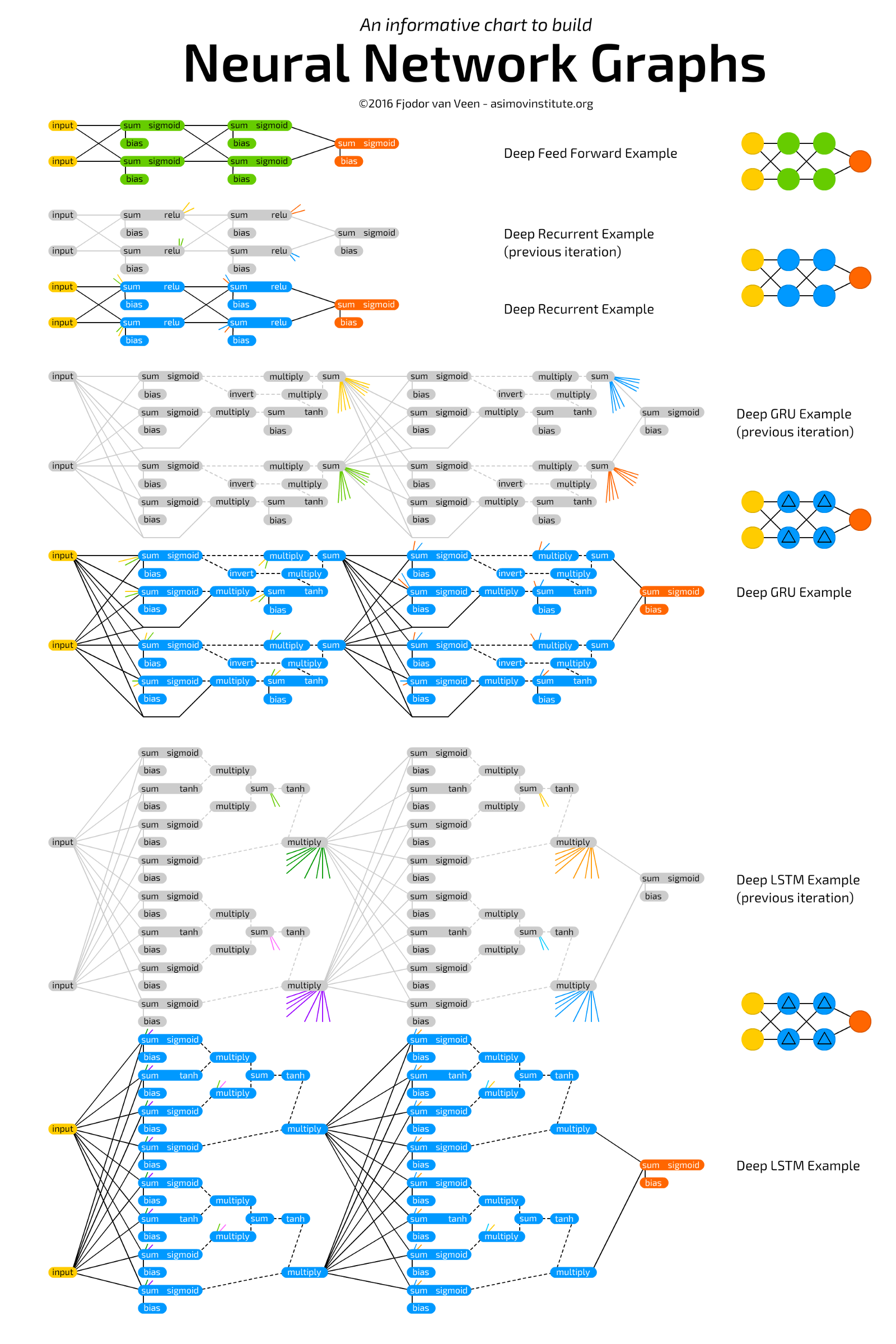
Memo on neural networks graphs

Memo on neural networks
Machine Learning Overview

Memo on machine learning
Scikit-learn Algorithm
This machine learning guide will help you find the right algorithm for evaluation, which is the most difficult part of the job. A flowchart will help check the documentation and set the general direction for each algorithm. This will allow you to better understand the problems you face and how to solve them.
Scikit-learn (formerly known as scikits.learn ) is a free machine learning library for Python. It includes various types of classification , regression, and clustering algorithms , including the support vector machine, the random forest algorithm (“random forest”), gradient boosting , the k- average method, and DBSCAN . Scikit-learn is designed to interact with the computational and scientific libraries of Python NumPy and SciPy .


Scikit-learn Memo
Memo on machine learning algorithms
This memo from Microsoft Azure will help you choose the right machine learning algorithms for your predictive analytic solution. First, the memo will ask about the nature of the data, and then advise the best algorithm.

Python for Data Science

Python Memo for Data Science

Memo for big data
Tensorflow
In May 2017, Google announced the second-generation TPU, as well as their availability in the Google Compute Engine . The second-generation TPUs have a capacity of up to 180 teraflops, while clustering 64 TPU - up to 11.5 petaflops.

TensorFlow Memo
Keras
In 2017, the TensorFlow team at Google decided to embed Keras support into the main TensorFlow library. Chollet explained that Keras is an interface rather than an end-to-end machine learning system. It provides a higher-level, more intuitive set of abstractions that simplifies the configuration of neural networks, regardless of the scientific computing library used in the backend
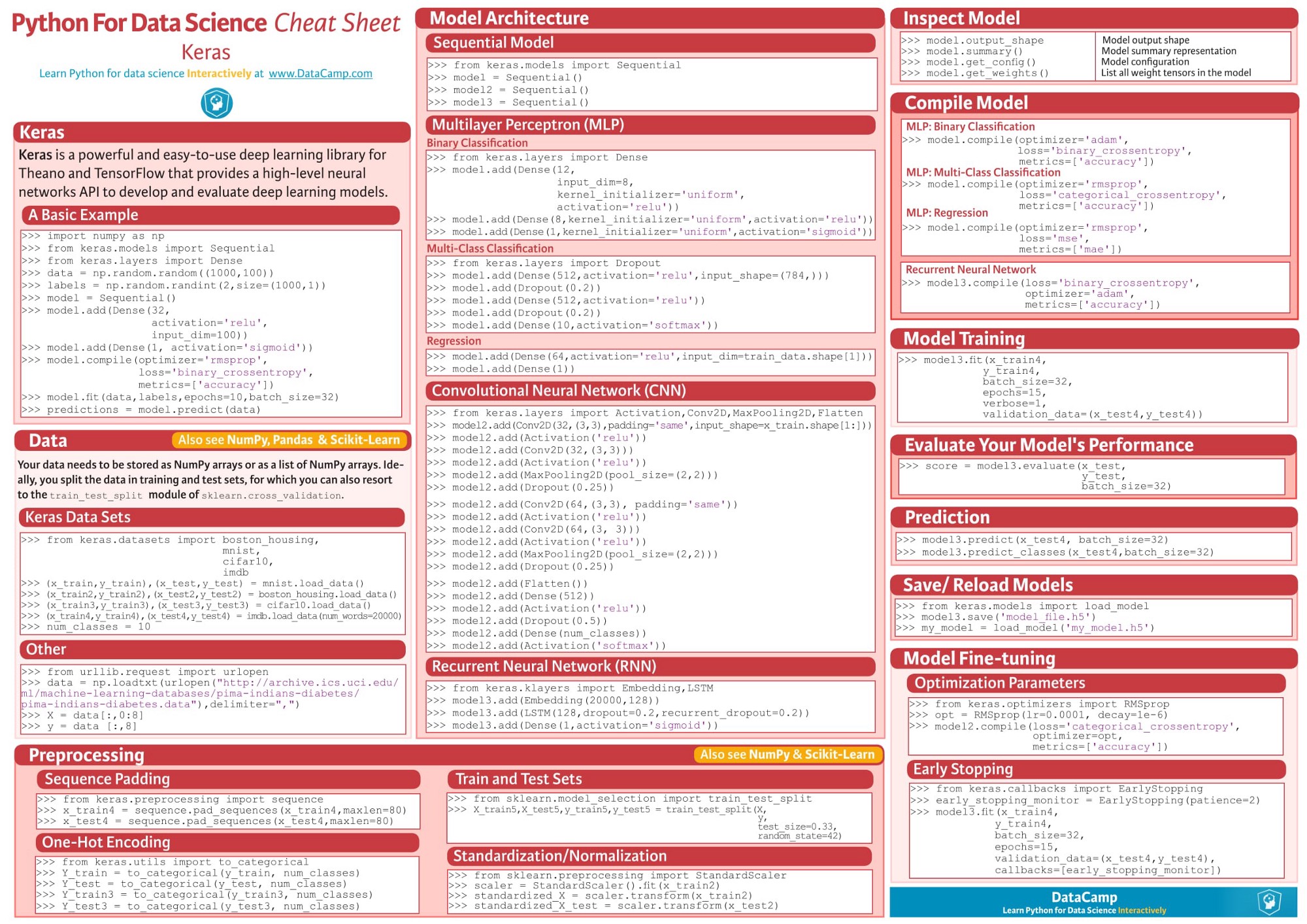
Numpy
NumPy is intended for Cpython , the reference implementation of Python, which is a non-optimizing bytecode interpreter. Mathematical algorithms written for this version of Python often work much slower than compiled analogs. The NumPy library partially solves the problem of speed due to multidimensional arrays, as well as functions and operators optimized for working with arrays. It will be necessary to rewrite part of the code using NumPy, mainly internal loops.

Memo by NumPy
Pandas
The name “Pandas” is derived from the econometric term “ panel data ”, which is used for multidimensional structured data sets.

Pandas Memo
Data wrangling
Data Wrangling ( “grazing” of data, primary data processing ) - this term begins to penetrate into pop culture. In the 2017 film “Kong: Skull Island”, one of the characters is presented as “Steve Woodward, our data wrangler”.

Memo for Data Wrangling

Pandas Data Wrangling Checklist
Data Wrangling with dplyr and tidyr

Data Wrangling Memo with dplyr and tidyr

Data Wrangling Memo with dplyr and tidyr
Scipy
SciPy is based on the NumPy array object. This library is part of the NumPy stack, which includes tools such as Matplotlib , Pandas, and SymPy , as well as an expanding set of libraries for scientific computing. The NumPy stack and MATLAB , GNU Octave and Scilab applications have the same user audience. The NumPy stack is also sometimes called the SciPy stack.

SciPy Memo
Matplotlib
Matplotlib is a graphing library for Python and its computational mathematical extension NumPy. It provides an object-oriented API for embedding graphs in applications using universal GUI tools, such as Tkinter , wxPython , Qt , or GTK + . There is also a state-of-the-art pylab-based procedural interface (for example, OpenGL) designed to be like MATLAB , although its use is not recommended. SciPy uses matplotlib.
Pyplot is a matplotlib module that provides an interface like MATLAB. Matplotlib is used in the same way as MATLAB, allows you to use Python, and is also free.

Memo by Matplotlib
Data visualization

Memo on data visualization
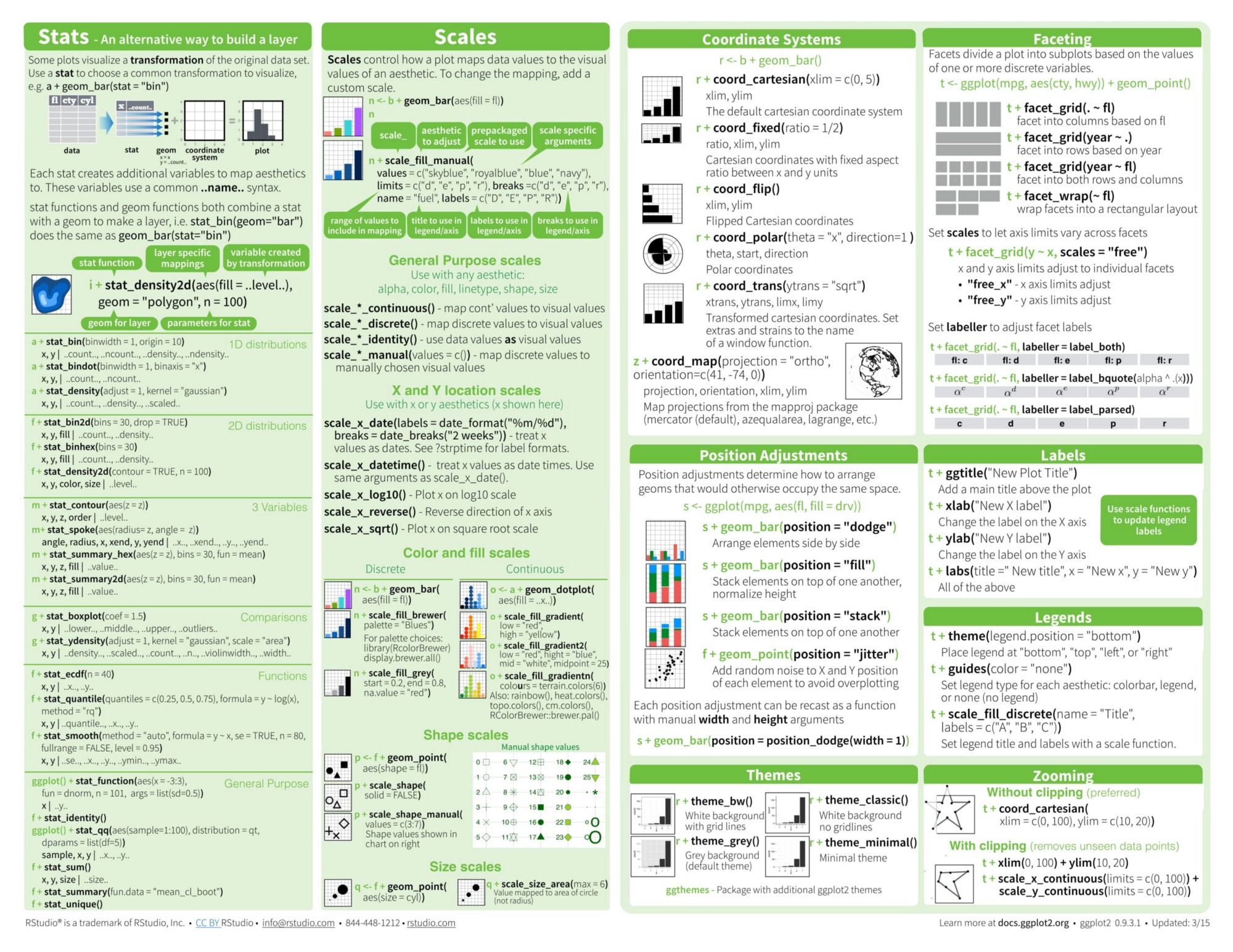
Memo on ggplot
Pyspark

PySpark Memo
“Oh Big” (Big-O)

Memo on the complexity of algorithms
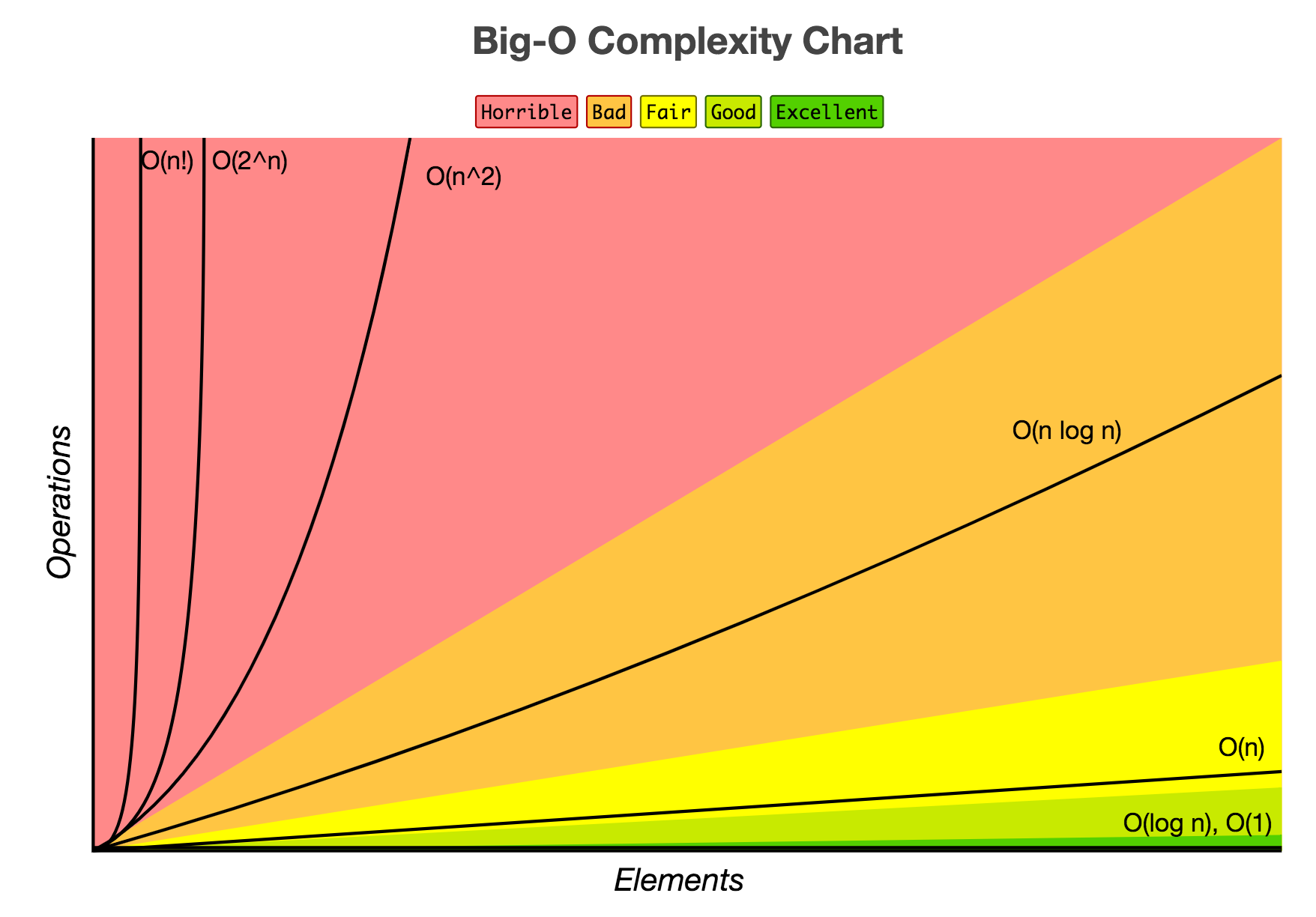
Memo on the complexity of algorithms

Memo on the complexity of operations with data structures in algorithms
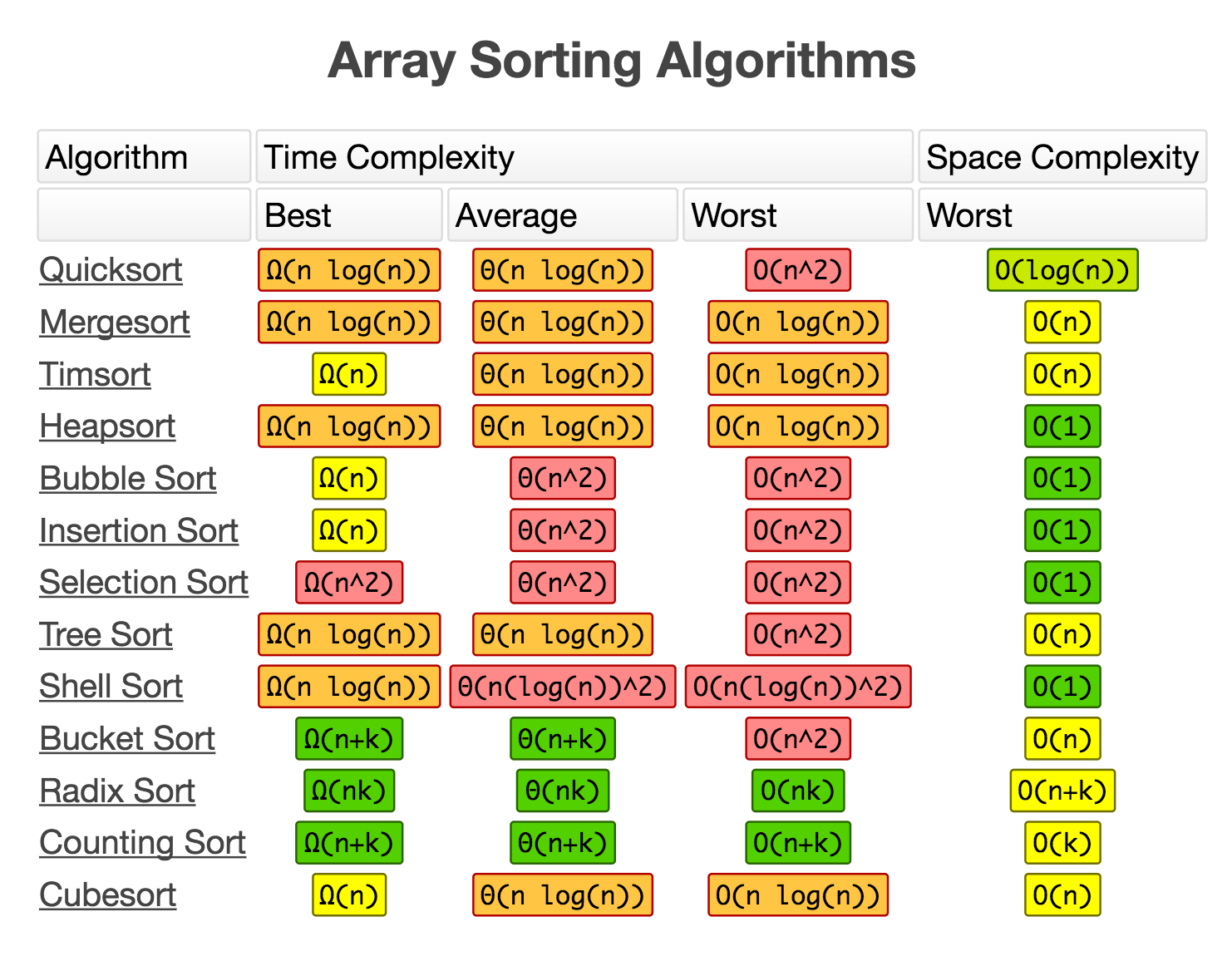
Memo on the complexity of the array sorting algorithms
Sources
Memo on the complexity of algorithms
Bokeh Memo
Data Science Guide
Memo for Data Wrangling
Ggplot Memo
Keras Memo
Memo on machine learning
Memo on machine learning
Memo on machine learning
Memo by Matplotlib
Memo on neural networks
Memo to graphs neural networks
Neural networks
Memo for Numpy
Pandas Memo
Pandas Memo
Pyspark Memo
Scikit Memo
Scikit-learn Memo
Scipy Memo
TensorFlow Memo
Source: https://habr.com/ru/post/417935/
All Articles